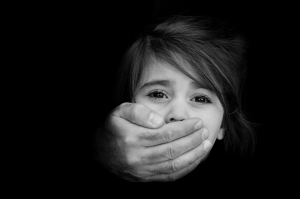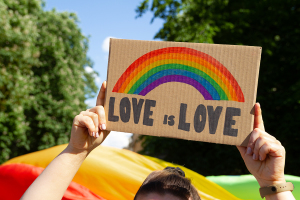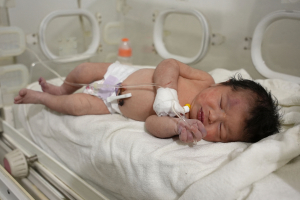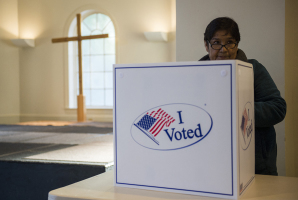Iranian president must be arrested in Geneva this week
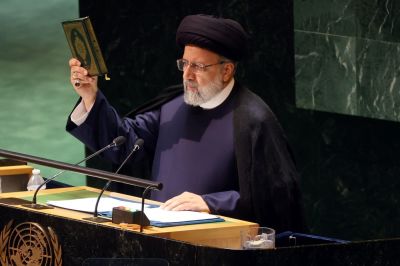
This week, the United Nations High Commission for Refugees is sponsoring the 2023 Global Refugee Forum in Geneva. The event will see participation from various heads of state, as is to be expected of a forum that explores opportunities for governments throughout the world to help alleviate a global refugee crisis. One should not expect, however, that any of the participating officials would themselves be contributors to the crisis. Yet this description certainly fits Iranian President Ebrahim Raisi, whose prospective attendance was revealed just days in advance.
Because of this, the forum is now expected to be the site of large-scale protests on Wednesday, as Iranian expatriates and supporters of the National Council of Resistance of Iran gather to draw attention to Raisi’s decades-long role in politically-motivated executions and overall repression of dissent — phenomena which have forced millions of people to flee the Islamic Republic over the past four decades.
These protests will no doubt underscore the impact that Raisi has had on the accelerating pace of executions since assuming the presidency in 2021. But they will place particular emphasis on the role that he played in 1988 as one of four members of the Tehran “death commission” that oversaw mass executions of political detainees in two major prisons. Similar panels of clerical judges were convened in a number of other localities that year, so that nationwide, more than 30,000 prisoners were executed in a span of about three months.
Raisi’s eventual ascension to the presidency was directly influenced by Supreme Leader Ali Khamenei, who had previously appointed him as head of the judiciary, as a steppingstone toward the second-highest office in the regime. Critics of the regime were quick to recognize both promotions as endorsements of Raisi’s repressive credentials, and as affirmations of a commitment to further violent crackdowns on dissent.
This perception was reinforced by the fact that Raisi’s tenure as judiciary chief coincided with a major anti-government uprising. In that role, he contributed significantly to a crackdown that was ultimately revealed to have claimed more than 1,500 lives in November 2019 alone. When he attained the presidency less than two years later, Raisi was able to promote similar violence against participants in the next major uprising, which broke out in September 2022 following the death of Mahsa Amini at the hands of the “morality police.”
The latest crackdown killed another 750 people in the streets of Iranian cities and in detention centers where a total of 30,000 people were processed after being arrested for protesting peacefully or defending themselves against unprovoked attacks by security forces. Not only that, but the regime’s response to the 2022 uprising continued throughout the following year, inspiring an ongoing surge of executions, with more than 700 victims so far this year, and 215 just since the outbreak of the Israel-Hamas war on October 7.
The UNHCR is no doubt aware of this phenomenon and Raisi’s role in it. After all, its sister institution, the UN Human Rights Council, has been conducting an investigation into the overall crackdown and has publicly warned about the surge of executions being based upon a desire to terrorize the Iranian people into compliance. This only makes it more inexplicable that the UNHCR would embrace Raisi’s participation in the Global Refugee Forum, without so much as issuing a statement to acknowledge his personal role in violating the rights of refugees and others.
The NCRI took the initiative to issue such a statement on Saturday, calling Raisi’s imminent visit to Geneva “a stain in the history of the UN” and “an insult to human rights, the sacred right to asylum and all the values for which contemporary humanity has sacrificed tens of millions of lives.”
The statement went on to say that if Raisi’s participation in the forum remains unchallenged, then the UN will only be perpetuating a “culture of impunity” that has been developing since the international community first failed to address the mass executions that were being ordered by Raisi and his colleagues in 1988. This, in turn, “emboldens the Iranian people to further massacre the Iranian people,” the NCRI concluded.
In 2016, NCRI President Maryam Rajavi announced a formal campaign seeking justice for the victims of the 1988 massacre. Since then, global awareness has grown regarding that crime against humanity, with activists inside the Islamic Republic sharing fresh information about the locations of secret mass graves in which some of the victims are buried.
The NCRI now stands ready to hand over that information to the UN, to initiate a formal international inquiry which could lead to the prosecution of Raisi, Khamenei, and other Iranian officials. Sadly, neither the UN nor its leading member states appear interested in pushing for such an inquiry at the moment. Raisi’s invitation to Geneva underscores this fact.
But until he is back in Tehran, there remains an opportunity to order his arrest on the basis of universal jurisdiction over major violations of international law, and to finally demonstrate that the Iranian regime no longer enjoys impunity with respect to its crackdowns on an increasingly restive population and organized movement for a democratic alternative to the Islamist dictatorship.
Ken Blackwell is an Adviser to the Jewish Institute for National Security of America and the former U.S. ambassador to the United Nations Human Rights Commission.
















